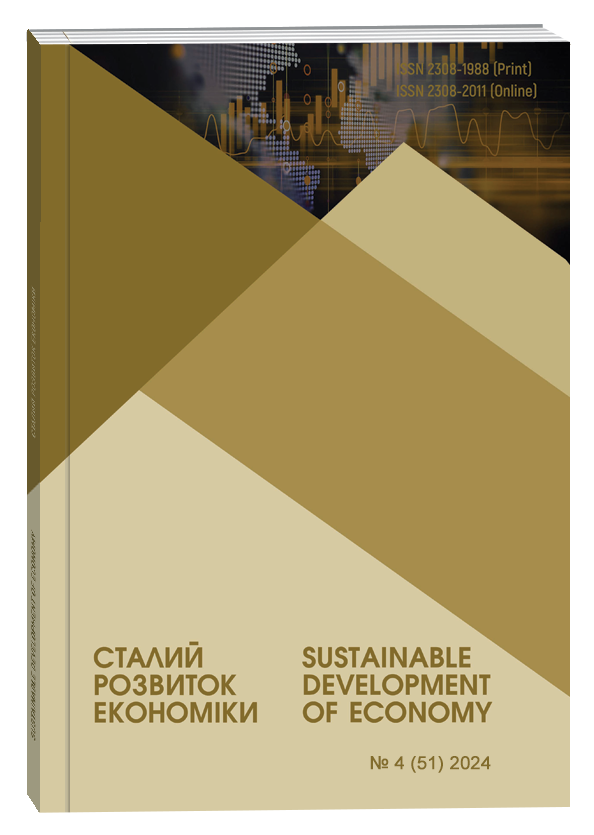THE CURRENT LEVEL OF DEVELOPMENT OF TOOLS FOR MANAGING THE PORTFOLIO OF INTERNATIONAL BUSINESS PROJECTS OF ENTERPRISES
Abstract
The article argues that strategic planning is a key element in managing the portfolio of international business projects. It is demonstrated that its implementation contributes to increased efficiency in resource utilization and a reduction in operational costs, which, in turn, positively impacts the financial performance of enterprises. It is justified that companies applying sustainable development principles and integrating environmental, social, and governance (ESG) aspects strengthen their reputation on the international stage and have better access to capital from investors supporting sustainable initiatives. At the same time, it has been proven that the adoption of flexible project management methodologies, such as Agile and Scrum, significantly enhances the chances of successful project completion, improves outcome quality, and ensures adaptability in challenging external conditions. It is argued that the integration of digital technologies, particularly automated project management systems (PMS) and artificial intelligence (AI)-based analytical platforms, allows for the reduction of operational risks, a decrease in project execution time, and an increase in forecasting accuracy. Moreover, risk management is identified as another important factor for Ukrainian enterprises implementing international projects, especially in conditions of geopolitical instability. It has been proven that applying strategic planning for risk management reduces the number of critical delays by 20%, thereby contributing to stable project execution. Additionally, it is justified that Ukrainian companies investing in environmental and energy-saving technologies not only reduce their operational costs but also enhance their competitiveness on an international level. Thus, the comprehensive application of strategic planning, flexible methodologies, risk management, and the implementation of sustainable development are decisive factors for the successful management of international business projects, contributing to long-term success and financial stability for enterprises.
References
Pahl, N. & Richter, A. (2007) Sustainable management of projects: A new approach to project management. Project Management Journal, vol. 38(3), pp. 24–32.
Kerzner, H. (2013) Project Management: A Systems Approach to Planning, Scheduling, and Controlling. Wiley.
Khan, F. & Burnes, B. (2007) Sustainable supply chain management: a literature review. Supply Chain Management: An International Journal, vol. 12(2), pp. 163–175.
Elkington, J. (1999) Cannibals with Forks: The Triple Bottom Line of 21st Century Business. Capstone.
Freeman, R. E. (1984) Strategic Management: A Stakeholder Approach. Pitman.
Meredith, J. R. & Mantel, S. J. (2012) Project Management: A Managerial Approach. Wiley.
Lundin, R. A. & Söderholm, A. (1995) A theory of the temporary organization. Scandinavian Journal of Management, vol. 4(4), pp. 437–453.
Bourne, L. & Walker, D. H. T. (2006) Visualizing project management: a key to success. Project Management Institute.
Ward, S. & Chapman, C. (2003) Transforming project risk management into project uncertainty management. International Journal of Project Management, vol. 21(2), pp. 97–105.
Seymour, L. & Hussein, S. (2013) Agile project management and sustainable business. International Journal of Project Management, vol. 31(3), pp. 456–467.


